- Hey Dullblog Online Housekeeping Note - May 6, 2022
- Beatles in the 1970s: Melting and Crying - April 13, 2022
- The Beatles, “Let It Be,” and “Get Back”: “Trying to Deceive”? - October 22, 2021
Posted at the excellent aggregator and original writing site Longreads is David Gambacorta’s exploration of the 1974 California jam session John Lennon and Paul McCartney engaged in — the last time they would play together. Most Beatles fans will be familiar with the history Gambacorta recounts, but it’s nice to see it laid out succinctly.
Gambacorta does turn up a few facts that were, at least, new to me: for example, it’s not clear what happened to the master tapes made that night. And the piece is well worth reading for the recent comments Gambacorta got from several people, including Elliot Mintz, May Pang, Paul Gambaccini, Chris Carter, and Jim Keltner.

A Toot and a Snore in ’74, the bootleg of the jam session that showed up in the 1990s, has got to be one of the most disappointing illicit recordings ever made. Sloppy, unilluminating, and drug-saturated, it’s a sad coda to the Lennon/McCartney working relationship. The fact that Stevie Wonder and Harry Nilsson were also present for this mess just makes it more depressing. Chris Carter has an intriguing theory about why it went so sideways: “The fact that Paul showed up put John on the defense. You can hear him try to act like it was nothing, but he knew it wasn’t nothing … and there was nothing there.”

I wonder if the session might have helped defuse some of the anger and defensiveness the former songwriting partners felt, just because it was so informal and chaotic. By making it the reverse of a “big deal” they let themselves off the hook a bit. If they could just be a couple of guys bashing around in a studio for awhile, maybe that made it easier to start making peace with who they were in the 1970s, as opposed to the megawatt presence they’d collectively been in the previous decade. McCartney has said that they were stoned out of their minds during the session, and that’s clear from the recording. How much of that was just habit at the time and how much it was an unintentional way to take the pressure off, who can say?

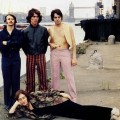
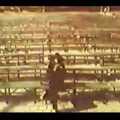
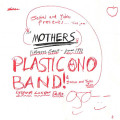
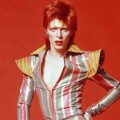
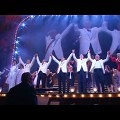
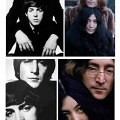
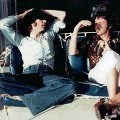
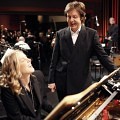
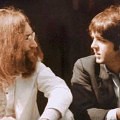
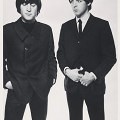
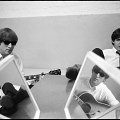
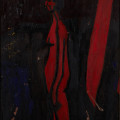
Hi Nancy! I enjoyed this.
In a Vanity Fair 2017 piece, author Joe Hagan wrote about writing Jann Wenners autobiography. He discovered Wenners idolatry of John Lennon, and how that shaped Rolling Stone covering him.
One thing I found very interesting regarding Lennon and McCartneys “lost reunion” was this excerpt:
“In 1974, Wenner received a mysterious cream-colored envelope in the mail, care of “Johann Weiner” and postmarked Los Angeles, California. Inside was a single Polaroid picture of John Lennon and Paul McCartney hanging out on a garden patio with friends: Linda McCartney, hoisting a pool stick; Keith Moon, in shorts and Roman sandals; and May Pang, Lennon’s then lover, holding McCartney’s daughter Mary on her lap. On the white strip below the image, dated “Palm Sunday 1974,” was the message “How do you sleep???!!!”
This was a reference to the John Lennon song from 1971’s Imagine, a notorious attack on McCartney in which Lennon snipes, “The only thing you done was yesterday.” Now the message was being re-purposed to attack Jann Wenner. Wenner said he never understood the precise meaning of the picture, but it was obvious it was a bitter joke from the Beatle he had betrayed. At the time, Paul and Linda McCartney had just appeared on the cover of Rolling Stone, while Lennon’s latest album, Mind Games, was torched by Jon Landau in the magazine for having “his worst writing yet.”
What Wenner didn’t know was that the Polaroid captured a pivotal moment in the history of the Beatles—the period when John and Paul managed a degree of detente after the acrimony of the breakup. It was also a portent of John Lennon’s return to New York City.”
This puts a different take on Lennon’s view of
the meeting. Also, he was getting back at Wenner, for publishing a book on Lennon’s famous interview with him, which Lennon had opposed.
This is interesting.
Hagan’s massive biography of Wenner (which I read and mostly enjoyed, and you all know what a stickler I am about writing on these topics) makes a big deal about Wenner’s closeted nature back in the 60s and especially the 70s. I suspect Wenner had a crush on Lennon; he sure as heck treated Paul like some kind of rival, not like a journalist. That magazine simply had the knives out for Paul, and there was no good reason for it — even RS’s positive review of McCartney, which I happened to read over the weekend, went out of its way to paint McCartney as false and manipulative, mostly for selling the same soap that John and Yoko had been selling since ’68.
Wenner surely knew that publishing Lennon Remembers as a book would alienate Lennon. Similarly John knew that this picture of harmony would rankle Wenner. I think John resented Rolling Stone’s ability to make and break a record in the 70s, and felt he’d made Wenner’s magazine; Wenner probably expected them to be friends after that long interview, and was hurt when they weren’t.
Tasmin, I hadn’t heard that about the photo sent to Wenner. Jann Wenner pretty clearly wanted to be Lennon’s best friend after the breakup, which I think fueled a lot of Wenner’s animosity toward McCartney. And it’s hugely ironic that publishing “Lennon Remembers” backfired on Wenner the way that it did.
.
What strikes me about Lennon and McCartney in the early 1970s is how young they still were. They had a LOT to navigate, and weren’t especially well-prepared to do so, since English men of their era weren’t exactly given a lot of support in expressing and acknowledging a full range of feelings. Add to that the absolutely crushing amount of fame they experienced, and it’s a wonder they managed as well as they did.
As I said to @Tasmin, I’m not sure publishing “Lennon Remembers” was a miscalculation — according to Hagan, Wenner was a narcissist and user of the first order. I think he knew full well that Lennon would consider it a betrayal, was simply too full of himself to care, and figured that Lennon would have to get over it and kiss the ring if he wanted good reviews. And he was more or less right.
You are so right about how young they were.
Whenever I find myself being too critical at some of their behaviors, I remember they were only in their twenties!! I cringe remembering some of the dumb stuff I did in my twenties.
I especially agree with your observation that Englishmen of that era where not in touch with their feelings. Especially having grown up in hard scrabble Liverpool! That was a big factor on why it would have been hard to talk to communicate with one another, and to let their guard down.
With everything I’ve read, I do think John and Paul would have worked together again. Maybe as a one time special Beatles concert. I don’t know, but I think they loved each other like brothers, and would have resumed some sort of relationship. I think Paul would have kept trying no matter what.
I also think at the time of the “lost reunion”, they were both realizing how outside forces ( like Wenner), were keeping them apart. I could see them wanting to blow everybody’s minds by putting out something new, and to prove the The Beatles were still the greatest band ever.
Look how close they came to blowing everyone’s minds by their almost surprise appearance on SNL.
I always wish they had blown everyone’s mind to do it. They could have just done an acoustic cover of some song from their teenage years they knew like the back of their hands, something they harmonized on(so no worries about “who gets to sing lead vocals”). That would have been enough to drive everyone crazy and done so much to take the wind from the sales of the people who wanted to pit them against each other, particularly the outsiders who did it, like the media.
[…] Lennon and McCartney’s “lost reunion,” by David Gambacorta June 25, 2019 […]
Thanks for posting this, Nancy.
I’ve always considered this session as the appetizer for the meal that never happened: John going down to New Orleans to jam with Paul during the sessions for Venus and Mars.
I think Chris Carter’s onto something with his reasons; but an even simpler one was that they were all fucked up on drugs. Remember that the Beatles always said the sessions were mostly clean — nothing stronger than pot.
The part I wished had explored a bit more was the incredible lust for a Beatles reunion. Throughout the entire West, and even behind the Iron Curtain, people craved it — in part because of what the Beatles had meant to them as individuals and the culture, but also as a relief from the crushing disappointment of the Seventies, the weird anomie of that decade. If you weren’t alive then, you can’t really know what it was like; it was five and I felt it. Today’s pop culture is infinitely more diffuse, and has to compete with everything made since 1960. But in 1974, Beatles fandom was more like a popular religion practiced by everyone under 35; you could accept it, or reject it, but like Catholicism, you were still living life under its terms. The Beatles were as popular as the Pope, and the generation that first found itself watching The Beatles on Ed Sullivan threw its desires everywhere. Sure, there were the cynics who thought it couldn’t live up to expectations, but they were a minority. There was so much…longing.
And, I think, it was positive. We have been conditioned to think of this as Lennon and Harrison thought of it — as stupid, misguided nostalgia, a desire to re-live one’s teenaged years. But how would they know? They weren’t Beatles fans! They were fans of Yoko and various gurus, respectively. Of course THEY didn’t get it. They couldn’t get it, any more than you can see the back of your own head.
“stupid, misguided nostalgia”
.
I am struggling with these thoughts words in a 25K words essay.
.
“Derek Taylor (1995) sketching the context of The Beatles in which they promoted ‘The Beatles Anthology’:
“What was it about them that made people feel good. (…) People of goodwill are glad when they hear that the ex-Beatles are (…) getting back together a bit, are still friends, are not broke, are not ill and so on.
What they were was… they seemed to people to be that which was healthy and wealthy and wise and happy and young and never short of an answer. Or if they didn’t know the answer, they didn’t mind saying, I don’t know. And it’s all right but you know, next. So, it’s just always this kind of group of people who could take care of business or take our minds off things.”
.
During these pre-Brexit days The Beatles are irrelevant, they are not even a relic from the past, but for a small group of people. Die-hard fans consider The Beatles phenomenon relevant in romantic personal backward-looking attitudes, not for inspiration in societal affairs. John Covach (2014):
.
“Those who experienced the Beatles music when it was originally released have a special—and perhaps even paradoxically, intimate—bond with the band.
(…) the music is a communal celebration, drawn from our youth and reminding us of the kind of optimism that goes with that time of life—the exhilaration of emerging adulthood.
We imagine we know the Beatles and that maybe they know us. We invest part of who we are in those songs and in those young men. This is a connection that future generations can never have.
The Beatles belong to our lives; they mean so much to us now simply because they meant so much to us then.”
.
Colin Fleming in 2017:
“I’ve noticed in these sociopolitical times that there is a great need for Beatles people to treat their heroes as if they are representatives of some nostalgia-friendly safe space.”
.
Philip Larkin appeared to be right when he wrote in ‘Annus Mirabilis’ :
So life was never better than
In nineteen sixty-three (Though just too late for me) –
Between the end of the Chatterley ban
And the Beatles’ first LP.
.
Many fans today weren’t even there in 1963, they missed the boat too, just like Philip Larkin did. Paul McCartney today seems to fulfill a role that dangles between rock music with tantalizing vitality in the here and now and at the other hand nostalgia and fantasy. Beatles’ Queen of all media’ Kit O’Toole is spot on in her 2019 Paul McCartney concert review:
“From the moment Paul McCartney hit the stage at the Kohl Center, nostalgia permeated the room. Fans of all ages relived memories of perhaps the first time they heard a particular song, whether in the 1960s or the present day. In an almost three-hour show, McCartney spanned his Beatles, Wings and solo years, triggering memories and undoubtedly creating new ones.”
.
So, what is going on with The Beatles? Are they a fountain of perpetual mirth?
.
“Though the Fab Four recorded only thirteen albums and two hundred and thirteen original songs together, it’s impossible to overstate their cultural and musical impact. But don’t worry—we will never stop trying.”
SiriusXM.com, the Beatles Channel.
.
The Beatles phenomenon seems a mixture of nostalgia and a comfortably numbing, at best soothing, fantasy.”
.
.
Indeed all the speculation… really does life have a meaning, an intention…? Can’s we see our thoughts on The Beatles are not thoughts on The Beatles alone, but the structure and the content, even the words and the interpunction is driven by other dynamics inside our bodies, our past and in our culture…
.
To call that “stupid misguided nostalgia” is an insult, but it sure is an expression of us that contains the past and the present.
“So, what is going on with The Beatles? Are they a fountain of perpetual mirth?“
In my humble opinion, it’s like James Carvel said when he was working on Bill Clinton’s campaign, “It’s the economy, stupid.”
I think with the Beatles, “It’s the music, stupid.” (Not saying you are stupid @Rob!)
The music is the reason we love them so much. How it makes us feel, how deeply it touches us. That’s why young people are embracing The Beatles 50 years on. The music is magical.
Hear, hear, @Rob — I always felt that Lennon and Harrison were totally out-to-lunch when they downplayed the legacy of the band.
In my experience, Beatles fandom is only numbing nostalgia when it is tethered to commerce — “relive the good old days” is a logical corporate sales pitch, but it doesn’t seem to be how most Beatles fans I know engage with the fact of the band and its music. Beatles music, and the four Beatles themselves, seem to embody a set of values that emerged in the Sixties but have persisted; they call to mind freedom, tolerance, universality, respect for the environment, recognition of love and bonding as the strongest forces of humanity…What the hippies stood for, the Beatles now embody.
In all this they run counter to the capitalist and nationalist forces currently killing the planet — but there’s no getting around how Beatles music makes you feel, as @Tasmin said. So in the end that will outlast our current nightmare.
“During these pre-Brexit days The Beatles are irrelevant, they are not even a relic from the past, but for a small group of people. Die-hard fans consider The Beatles phenomenon relevant in romantic personal backward-looking attitudes, not for inspiration in societal affairs.”
Happily, this has not been my experience; most Beatles fans I know look directly to J/P/G/R and the music they made for inspiration in societal affairs. Whether it’s gender equality as demonstrated by John and Yoko; Eastern meditative practices demonstrated by George; vegetarianism as demonstrated by Paul; or simply the repetition of “peace and love” by Ringo, Beatles fans I’ve known have drawn a direct line from their heroes and their music to their own personal codes of conduct. And that’s why you see babies dressed in Beatles onesies — their grandparents were the Sixties-era fans; but it’s their parents invoking the totem of the Beatles, of “Imagine” and “the love you take is equal to the love you make.”
We must always keep in mind that the current wrongheadedness — Brexit, nationalism, etc — these are solidly minority positions, and ones held in place by legislative chicanery. In my experience, they are not the opinions of most people. And Beatles fans, even fewer. Love of the Beatles is a much, much more universal affection, and should persist.
What’s the difference between sentimental nostalgia and enjoying art made in an earlier time? I love Victorian novels, for instance, because they speak to social and ethical questions we’re still grappling with, IMO.
.
I went to the McCartney concert in Arlington, TX a few weeks ago with a good friend who’s an art historian and museum curator. I’d say art of quality speaks across time, and that includes popular music.
.
When I look at a Jackson Pollack painting, for instance, I don’t want to be back in the time when he was painting it; I’m experiencing what it makes me feel and think today. I wasn’t born when “A Hard Day’s Night” was released, but it connects with me emotionally in the here and now, and I love hearing McCartney and his band play it live.
.
William Faulkner famously said that “The past isn’t dead. It isn’t even past.” We could have a long discussion of the myriad meanings that can have, but I think one pretty positive one is that great work lasts and can continue to affect people and through them, the future.
When I listen to the Beatles, it’s not out of nostalgia. It’s because I love the music. And fifty years after I first heard a Beatle song, I’ll hear it today in a new way, because of all the other music I’ve listened to since then.
.
If this was about reliving my childhood, I’d be buying a Monkees box set. Because I enjoyed the Monkees on TV when I was 10 years old.
.
I still enjoy hearing the Beatles (and lately the new Giles Martin remixes) because the harmonies and melodies still move me. It has nothing to do with wanting to be 10 again.
.
I didn’t particularly enjoy being 10 the first time around. I certainly wouldn’t want to repeat the experience.
.
There’s all sorts of things I loved in childhood: The Monkees, Adam West’s Batman… but I’m only interested in revisiting the Beatles. A pair of headphones and the Giles Martin remixes and I’m fascinated for hours. There’s always something new to discover.
.
It’s like rereading a novel I first encountered in high school. Reading it again at the age of 61, I appreciate the stuff I missed the first time around. It’s not yearning to be in high school. In fact, it’s the opposite. I prefer being where I am now, and bringing the Old Art forward with me into the light of my present day.
@Michael Gerber
“In my experience, Beatles fandom is only numbing nostalgia when it is tethered to commerce — “relive the good old days” is a logical corporate sales pitch, but it doesn’t seem to be how most Beatles fans I know engage with the fact of the band and its music.”
I agree with this…
There is however also that people listening to music are mostly ‘listening’ and ‘experiencing’ associated feelings (emotions and images, thoughts, etc.) instead of sounds, rhythm, musicality and craftsmanship. To me you seem to confirm this by stating:
“Beatles music, and the four Beatles themselves, seem to embody a set of values that emerged in the Sixties but have persisted; they call to mind freedom, tolerance, universality, respect for the environment, recognition of love and bonding as the strongest forces of humanity…What the hippies stood for, the Beatles now embody.”
Do you really think ‘recognition of bonding and love as the strongest forces of humanity’ has grown since the seventies?
As far as I can see political and systemic influence of these ideas have gone down the drain and most GOP voters accepted this as a consequence consciously. Most relationships that last, still seem to fail to produce love and bonding in an enduring way, as if love and bonding are the expression or the means to fulfill another need. I might be wrong here. The chemical/neurological underpinning point to biological ‘homo sapiens sapiens’ needs instead of cultural expressions of love and bonding. Wealth and consumerism have changed the mode of relationships significantly… but maybe “A Little Life” by Hanya Yanagihara shows a new way of love and bonding I have yet to learn to understand and experience.
Michael Gerber: “there’s no getting around how Beatles music makes you feel, as @Tasmin said. So in the end that will outlast our current nightmare.”
I guess you are right, if only because these are completely unrelated phenomena.
I wrote:
“During these pre-Brexit days The Beatles are irrelevant, they are not even a relic from the past, but for a small group of people. Die-hard fans consider The Beatles phenomenon relevant in romantic personal backward-looking attitudes, not for inspiration in societal affairs.”
What I meant is…
In the discourse and media coverage none of what The Beatles have or had to offer has relevance today. The little kid of Harry and Megan was more important… do not forget that in 1963 before The Ed Sullivan show, The Beatles already outshone the Queen. The Beatles gave perspective. The Beatles offered a real escape. The Beatles offered a way to protest, in a similar fashion the way the British soldiers in WWII protested against the Empire, the economic, cultural and political elite. Check Jonathan Fennel’s ‘Fighting the People’s War’ (2019).
John and Yoko and gender-equality!? Gosh, why do I have problems with seeing that? Yoko, yes, she had a big influence on gender equality and feminism. I remember listening to ‘We’re all Water’ with a red head because I thought people would think I was crazy listening to that kind of noise and political content. I loved ‘Woman is The Nigger of The World’, but John political and artistic grandstanding had no value as it was rich boy playing pr-games, the rich English young man, taking the freedom to do things against the elite… To me it was mucus. And then later he was still treating women like he did in the late fifties and early sixties, and was quoted in ‘Love Me Do!’: ‘Anyway women should be obscene and not heard.’(Braun, Michael (1964-2016). Love Me Do! The Beatles’ Progress. Graymalkin Media. ISBN: 978-1-63168-079-3. E-book, Kindle Edition. Kindle Locations 288-291)
The current wrongheadedness whether in the UK, the USA or on the continent is surely not a minority. We disagree here. You are not saying Trump is an outlier? As if the GOP as a party wasn’t running in the direction for years and years and years. Having lived and worked in the USA, I heard a lot of ‘sane’ people with a liberal slant expressing values, economical believes and political convictions and animosity that has now come to the surface with Trump. E.g. the destructivism of the USA against Europe, regardless of NATO, was happening during Clinton, and under every presidency it increased. Another example: The support of the fear mongering in the apartheid state Israel has never diminished it only became stronger, it did not even diminish under Obama.
@ Nancy “The difference between sentimental nostalgia and enjoying art made in an earlier time?”
To me that is an easy one. Sentimental nostalgia is longing back to something that is a fantasy of the past. Enjoying art made in an earlier time, is, I assume, enjoying art regardless of its time, or one has an interest in those times, and digs the art that comes from the era. Hope it makes sense. Your reference to “Victorian novels, for instance, because they speak to social and ethical questions we’re still grappling with…” … I am not sure what to make of what you intend to say. I suppress an unfounded, “You see, that is what I mean”, but somehow the increasing American interest with an echo of Victorian conservatism is recognizable. I rather not assess the effects on the ways we live together – and I am not only referring to less freedom, less tolerance, increasing prudishness, which did not only start with Tipper Gore, and it is not only limited to America…
Nancy, your reference to Macca’s concert… means a lot. I really do wish Beatles’ fans who maybe think a little too much are able to find the words and attributes to describe what that ‘art of quality’ or ‘the art’ really is… I have read how a lot of Beatles’ fans elevate Beatles’ music to art, and declare K-pop to shit, or are unable to grasp ‘Fuh’ you’.
William Faulkner’s statement “The past isn’t dead. It isn’t even past.” Faulkner is about the past, and the struggle to both accept the past as a part of oneself and continue into the future.
As an historian I may have a deeper respect for the influence of the past than on the average. Having studied enough of neurology I guess I have reasonable doubts about escaping that past and about the concept of free will to escape that past or to consider a large margin of alternatives to chose from.
Big events in the past have shaped the collective minds and behaviors. I suspect that in our personal lives it’s right and proper to let go of past hurts and resentments but there are some things, not necessarily happy or pleasant, that demand to be remembered. We just have to sort them out from the trivia. And then there are things from the past we can cannot erase… (read ‘Behave’ by Robert Sapolsky).
Rob, about Victorian novels, I meant that nineteenth-century England was dealing with industrialization, the increasing gap between rich and poor, mass media, bureaucracy, and science vs. faith, among other issues that I think are relevant today. Some writers of the time took conservative positions, and others didn’t. I value their work because I think it can help us do what you describe Faulkner as working to do—help us understand how the past has shaped us and how we might respond to it.
.
In my experience, all kinds of fans, of all kinds of genres, can talk down work that doesn’t resonate with them personally or that they have some other perceived reason for disparaging. This virtually always produces a lot of heat and very little light.
.
We make ourselves vulnerable when we talk about what we enjoy, which is one reason I think people can be hesitant to do it.
.
I have read Sapolsky’s “Behave” and found it illuminating and very well-written. His sense of humor I especially appreciate. Calling a chapter “Adolescence: Or ‘Dude, Where’s My Frontal Cortex?’”is perfect.
I love the reference and appreciation of the Victorian novels… it is a trend I heard at a recent publishers’ conference. The difference between the inequality of nineteenth-century UK is the difference in emancipation and democracy. There is no citizen, especially in capitalist USA, who can escape responsibility regarding what they consume, their votes on every level, their public discourse, the way they invest their 401K.
Allowing Reaganism and Thatcherism and then the deregulation in the nineties has created a return to the nineteenth century which is what the GOP is basically driving for, and many among the independent voters and Democrats. Out of fear??? for… big money influence…
.
Whether you are a descendant of the sixties generation Michael referred to, or aware of the contingencies of the Victorian age – check this, is the government debt or minus in the budget bad or good for economic growth? And do you consider thinking about this as relevant for your political choice and your pro or contra-tax attitude?
.
The discussion about this has been driven by propaganda and fear… nothing is real and true…
.
The power of the biggest wealthiest the 0.01% is destructive, you will not find in the Victorian novels…
https://www.nytimes.com/2019/06/22/opinion/notes-on-excessive-wealth-disorder.html?
Rob, I certainly agree that the wealth divide in the U.S. is toxic and growing more so (similar things are happening in other countries as well) and that we all bear responsibility for knowing what is happening and for acting on that knowledge. One reason I find Victorian writers relevant to our own time is that the nineteenth century saw the rise of the multinational corporation and the expansion of colonization. Looking at their situation and their writings can, I think, help us understand the roots of where we are now.
.
To return to art, I believe that creative work can help to change people’s minds and awaken their consciences. Dickens, for example, helped to humanize the London poor in his fiction — characters like Oliver Twist, Tim Cratchitt, and Jenny Wren made the suffering and inhumanity produced by the financial and social system vivid and hard to dismiss for many of his readers. As an individual Dickens was a mixed bag, to say the least, but he tended to use his public platform to push for liberal reforms.
.
Whatever artists’ and performers’ failings are, I find it inspiring when they use their influence as a lever for good. The Beatles were behind the desegregation of Jacksonville’s Gator Bowl in 1964: they had it written into their standard contract that they wouldn’t play segregated shows, and the Florida officials finally relented. That was only one show, but it mattered. Seeing the resurgence of racism and allied forms of inhumanity today, I think we need all the reminders we can get that it is possible to stand up for principle and instigate change.
Oh yeah…
.
This is where I have to stop Nancy, I have been here ever so often on this blog, and my comments are often considered unacceptable because they seem to aim for the personal when from the arguments that are presented a deeper layer of thinking can be detected. The problem in the current climate and that includes the conservativism around Trump, the GOP and the nationalists in Europe – they attempt to explain and understand the current world with the arguments of the nineteenth century. It is what deserves to confronted and with all means, but not here. So, for me, it is case closed on the Victorian argument. It is the kind of thinking that has caused two world wars and many smaller wars, including Vietnam, Korea, Middle-East, Yougoslavia, and the current trade wars.
.
Do we fans really believe The Beatles had this anti-segregation clause in all their contracts? Where is proof that officials in Florida “finally relented”? Were they really persistent in resisting the demands?
.
What about “I think we need all the reminders we can get that it is possible to stand up for principle and instigate change”, where is that protest against war, inequality, poverty, bad health care…? What principle are you willing to fight for, and instigate, demand and fight for change? America I a peaceful place, I don’t see resistance against Trump and the GOP.
There is a possibility, forget principles, fight the bad stuff… https://thebeatleshistoryreview.blogspot.com/2018/11/love-and-peace-on-tyranny-your-personal.html
My own sense is that we share some common ground on the current political situation, Rob, but as you say, this isn’t the venue for an in-depth political analysis.
.
The 1964 Jacksonville show and the segregation controversy are well-documented. Here’s a link to a 2014 Orlanda Sentinel article that gives a brief overview of it. Here’s a BBC article about not playing for segregated audiences being included in the Beatles’ contracts.
In the Ron Howard documentary “Eight Days A Week,” Kitty Oliver, an African-American women who was 15 in 1964, describes what it was like to attend the Beatles’ show and experience an integrated audience. It was a big deal, because the Civil Rights Act had only been passed a couple of months earlier. Here’s part of what she said in a post on the “Beatles Story” blog:
“At the time, I didn’t know anything about the group’s press conference announcement refusing to perform for an audience where Black patrons would be forcibly segregated from Whites, probably relegated to the worse seats farthest away from the stage and maybe subjected to a threatening atmosphere if they showed up. . . .
On the day of the concert I took a Black-owned taxi cab to the Gator Bowl, slapped down my money on the counter of the booth outside, and headed into my first music concert. The room chilled as I walked into a sea of White faces. I sat in silence with elbows drawn in tight to make sure I did not accidentally brush an arm and spark an outburst. As the band entered and the crowd rose, a tall, slender White man to my left who looked to be in his 20’s rocked unexpectedly close as the crowd rose, thunderous, in unison, when the Beatles took the stage. Then, tunnel vision set in: Eyes glued to the front, I sang along to “She loves me, yeah, yeah, yeah…” full-voiced, just as loudly as everyone, all of us lost in the sound.”
.
Finally, journalist Larry Kane — who traveled with the Beatles on the tour — wrote this piece for CBS News about the Gator Bowl event. Here’s a portion of it:
.
“My contemporary music station in Miami had advised me that the management of the Gator Bowl — where the Beatles were scheduled for Sept. 11 — stated firmly that the stadium would be segregated, as were many in the South back then.
As I entered the room [on August 20], I told manager Brian Epstein and the four about the Gator Bowl rule. Paul got up from the sofa defiantly, “We are not going to play there.” John was even more blunt, “No f…ing chance that happening.” Ringo and George agreed.
After my taped interviews were concluded, I relayed the outrage in a phone report to my station WFUN. It was distributed to 51 other radio stations nationwide. The stage had been set for a test of wills that would conclude in, of all places, balmy and quiet Key West, Fla.
As Beatles’ management filed protests with the Gator Bowl, the tour barreled through 13 more cities. . . .At the Montreal airport, Epstein asked me where else the entourage could travel in Florida, a spot for a day or two of quiet as they waited out the threats of weather and segregation. From my “local knowledge,” I recommended Key West and called some friends there. The plane tracked southbound.
The landing was at 4 in the morning. We settled in the Key Wester hotel. For a few hours, on Sept. 10, the boys relaxed. John even made into a swimming pool with several members of the Exciters, a ’60s pop group — three girls, one guy, all African-American. The pictures of John in the pool with several black woman enraged Southern reporters. The photos became an overnight sensation.
Years earlier, Paul and John had enraged the Liverpool establishment by putting Joe Ankrah and his magical group the Chants on the stage of the Cavern. Joe is black, and in my book “When They Were Boys,” he remembers, “It was bad enough that the modern moods [racism] never gave a black group a chance, but if not for Paul and his friends, we would have never stayed together. . . . In fact, I think that meeting with the Beatles changed the direction of my life.”
Back in Key West, with the hours ticking down to the Gator Bowl, Epstein advised that the word had come in. The Gator Bowl, for the first time, would be fully integrated.”
Wow, thank you for the resources, that support the significance of the event, as viewed from 50 years later. They definitely support what you wrote earlier. Except for the width and depth of the change in standard contracts.
The sound clip with Paul protesting is obviously a fully reliable primary source, which is consistent with Paul’s view on racist America then and now, that minorities and especially blacks were considered animals by a lot of racists folks. Crazy then and crazy today and not much protest from the whites then and not much protest from the whites today. The report of Paul’s opinion is contemporaneous and, again, fully reliable.
.
It is obvious from the witness account by Kitty Oliver that she came into the concert. The understanding of segregation, however, seems to be different from what we understood in 2014 and claim today to understand. Kitty Oliver without knowing “anything about the group’s press conference announcement refusing to perform for an audience where Black patrons would be forcibly segregated from Whites” went anyway and bought tickets for a place as close to the stage as possible. The segregated audience would mean she had to sit in the back, but would still be allowed in. She took her chances and believed to be able to get a front row ticket without knowing about the Beatles’ point of view and fully aware of segregation and other apartheid rules. Her retrospective account (50 years or some later) seems reliable, even though it is unclear for me how she got into the Howard documentary.
.
The historian in me has second thoughts… (also check Erin Torkelson Weber’s toolkit for being critical of these stories: https://beatlebioreview.wordpress.com/2018/05/15/2649/#more-2649
.
The other reports you refer to may indeed be indicative of truth, they are however all retrospective, these sources are potential with an agenda and bias to promote, favoring a specific version of history emphasizing their reputation ‘I was there’ (Larry Kane, he had a reputation and books to sell) and The Beatles were really change-agents.
.
The moral issue makes it all the more suspect, exaggeration becomes part of the storytelling, especially because it was a great pr issue for the Howard documentary.
.
I have yet to see verifiable proof the anti-segregation clause became standard in their contracts. And how did Brian Epstein change the contracts that were already signed, sealed and delivered? He had the business attitude to take the loss himself, just to prevent embarrassment, for the boys or for him in relation to the boys. [e.g. read ‘The Love You Make’ by Peter Brown and Steven Gaines, also: from what we know Brian was willing to cancel the 1966 American tour and take the loss – to keep the boys safe.)
.
Thx for having this conversation.
Retrospective reports of these events are all that’s readily available. At press conferences and in public statements in the early and mid-60s the Beatles were consistent in decrying racism, so the retrospective accounglts are believable to me. Your mileage may vary.
My mileage varies not so much on anti-racism of The Beatles, which was never the issue. It is about a) the contracts, and b) whether and how it became standard (in1966 indeed it seems to be standard< I can't check the Have Some Fun Tonight books for other contracts) and c) the real change for the public beyond the day The Beatles visited the venues discussed.
I always felt that John deep down sort of resented Paul for this. It was Paul showing up unannounced, as he pleases…putting the pressure all on John. I can see John feeling like he was being shown up. Upstaged by Paul who had everything together at that point relative to John who seemed to have things falling apart.
Yeah, because John resented Paul for bloody everything. *rolls eyes*
Well, it it John’s very, from own multiple quotations and interviews, throughout the seventies and even in his final 1980 interviews that caused folks then and now to discuss his resentments of Paul, though John was inconsistent about this and sometimes seemed less resentful.
As an old vinyl junkie and one with a several Beatles and solo Beatles bootlegs, however, I almost think I have this great mid seventies stoned John and Paul reunion bootleg, all high as kites, unlistenable stuff. My vinyl is all so packed back. Cocaine was a hell of a drug as saying went in the seventies, lol. This is the second solo Beatle bootleg I’ve stumbled across on the blog and reminds me that I have a George solo boot and the great colored red, white and blue wings American concert boot that hastened official release of WOA
. Most boots were such poor quality didn’t affect later planned release sales but that one did. The most counterfeited, but not bootlegged Beatle record was introducing The Beatles and, hard to say, but Hollywood bowl before later official release was probably the big Beatles early seventies boot, After vinyl boots, they became CDs and now probably online. I read about yellow dog and blue dog boots after I got out of collecting boots. Most of my boots are unlistenable but hapoyy to get them.
@Pidpoo, it does not surprise me that you collected boots! I did too!
.
I didn’t know that WOA was hastened by a boot; totally unsurprising. Anthology was hastened by the appearance of high-quality CD boot series like Artifacts I and II, the Great Dane BBC set and, I guess, some of the Unsurpassed Masters series. If those hadn’t appeared, I don’t think George would’ve agreed to an Anthology (or maybe he was bankrupt enough post-Denis O’Brien?).
I once had a vinyl bootleg of an early Wings concert, and I have to say it captured the feeling of sitting fairly far from the stage next to some very enthusiastic (and quite possibly drunk or chemically enhanced) people. The sounds of nearby fans yelling were so much louder than the music that it truly replicated the concert going experience in a way that cleaner live recordings don’t!
@Michael and Nancy, you are really getting down my alley with interesting comments about bootlegs and concert bootlegs. I really wish I had more but it was always a risk as so many had poor sound quality and you couldn’t sample before buying vinyl or CDs in those days. The crowd noise as with early Beatles screaming audiences and the later crowd chatter and cheering greatly interfered. I read WOA cut some of this audience interference as probably did probably WOE and somewhat sweetened background vocals and guitar.
I read online a commenter has 50+wings boots and another has all Macca boots, but most poor quality. These folks are completists.. Thus, extraordinary quality and performances of wings over Europe was phenomenal. I have found online wings Australia and England mid seventies tour but video and audio quality wasn’t as good and they tightened up performance by WOA. I found a boot audio of 79 wings Glasgow in 79 and brief video boots of wings Christmas shows. I almost have to rank wings over Europe with WOA for Macca vocal clarity and prowess And rocking but WOA had it all including performance perfection. Maybe I’m amazed wings Europe is my favorite live version of song. Live Bruce mcmouse ICA wings videos and JPM tv special wings seriously slays.
I have the John roots boot that also caused rushed release of rock n roll music album and possibly some more John boots as a big John fan then. As for other solo Beatles released concerts, I’m fond of John part of Toronto and read Little Richard played same festival and his one in one is good. Parts of George japan us good but prefer Bangladesh desh tour and may have another 74 tour George tour but his voice was horrible. I like the Paul amoeba live album and the Back in US 2002 album.Those are all regular releases.
I was reading about the future Let It Be release and , though won’t buy it, there are the interminable song snippets, jams and talking besides of course the completed songs. I’ll stick to my two sweet Apple tracks boots. get back dig it boots, etc. It was amazing they pulled it together for their cool, hippie rooftop busking performance. Nancy, that wings fan on boot might you have might have been me, LOL. Good DAZE then.